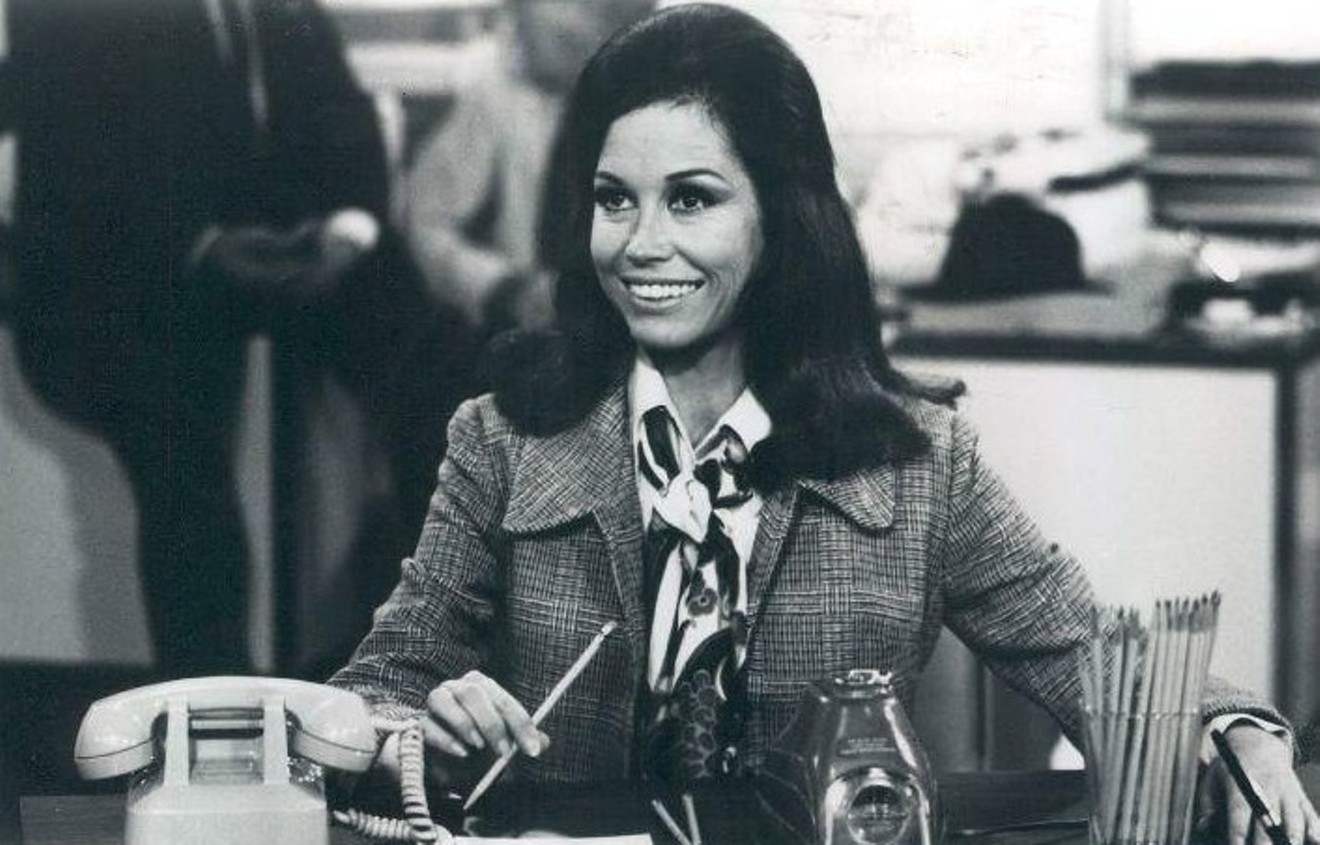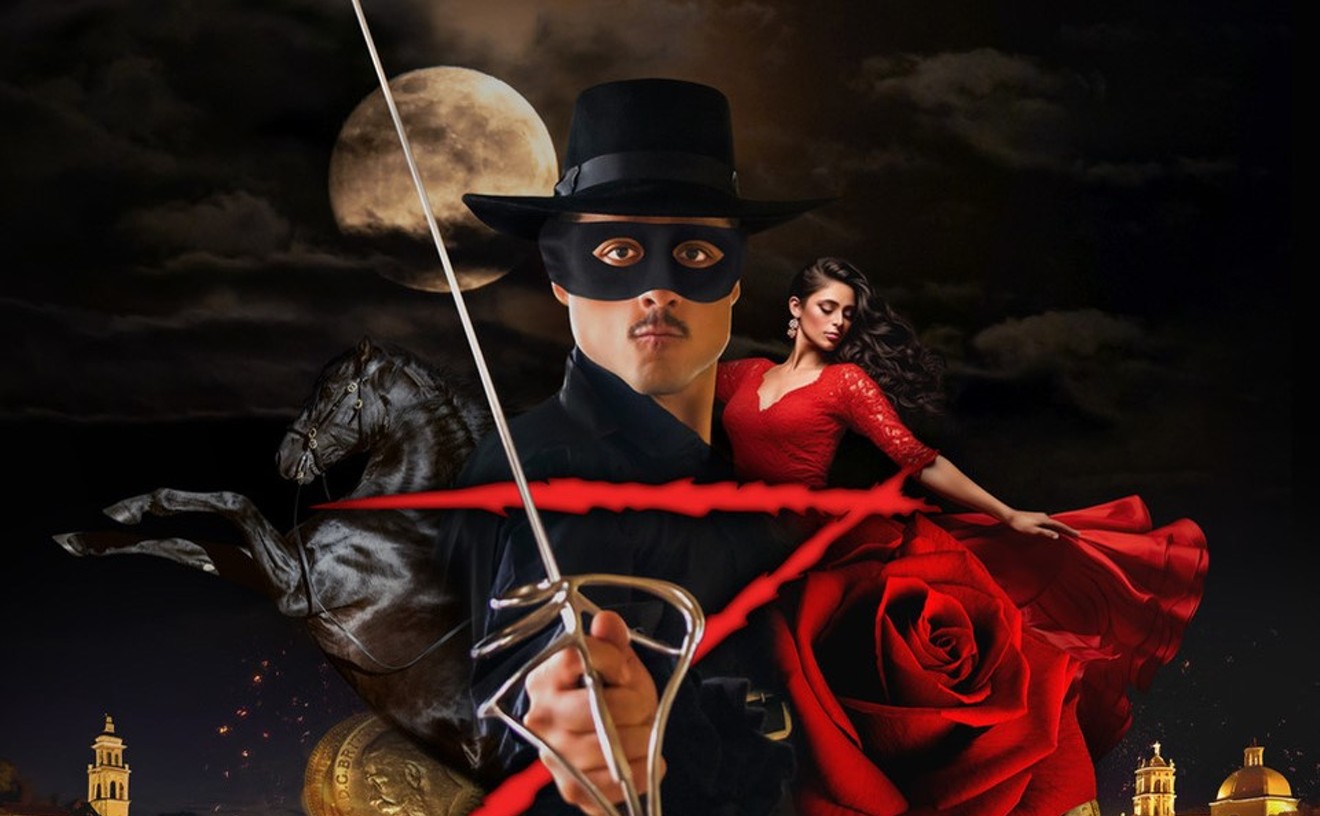It was late last year when I said to my husband with total seriousness: God, I hope someone's keeping a close eye on Mary Tyler Moore.
After what felt like trillions of celebrity deaths cast an uber-pall over what was otherwise a pretty terrible 2016, I was feeling a potent but gloomy mix of fatalistic and optimistic. And I wasn't ready to say goodbye to my television icon, the woman I'd idolized in not one but two television shows. The woman whose characters changed the pop culture landscape. The woman who confirmed my young feminism and inspired me (and surely many other women) to pursue journalism.
I still don't want to, but on Wednesday, January 25, Moore died. She was 80.
I grew up on reruns of The Mary Tyler Moore Show, and found a role model: a flawed but hardworking woman who spun around, threw her hat in the air, and smiled broadly as her opening theme played. "You're gonna make it after all," Sonny Curtis sings. Sometimes, the toss looks like a fuck-it-all moment. (It was, after all, shot at a mall in Minneapolis.) Sometimes, it's carefree or an indictment of inescapable 1970s stripes.
Always, though, I was rooting for Mary Richards.
The show, like others by James L. Brooks (who went on to create Taxi and develop The Simpsons), was no typical sitcom. It was the first to portray a single, 30-something woman working to make it on her own. She hadn't been married, wasn't actively seeking a husband, and she'd previously lived with a boyfriend. He more or less dumped her — after she helped support him through medical school — and broke her heart.
So, she moves to Minneapolis and, after trying to secure an administrative job at a TV network, landed a gig as an associate news producer.
She was funny. She was smart. She could hold her own with the curmudgeonly Lou Grant and the mimbo Ted Baxter. She faced sexism, pushed for what she wanted, formed strong friendships with women, and worked really, really hard. Mary got a promotion, went on bad dates, was the recipient of near constant shade from her landlady, and, let's not forget, went to jail for refusing to reveal a source.
Tell me this isn't the exact TV show you'd like to watch right now, that it isn't exactly the thing you want from pop culture as the media, women's rights, and the arts face a kind of resistance we thought belonged to another era.
Of course, it's silly to conflate the character of Mary Richards with the actress who portrayed her.
Moore had a story all her own. She struggled with alcoholism, won Emmys and Golden Globes, wrote two memoirs, and worked to raise awareness for Type One diabetes, which she was diagnosed with at age 33. She starred in a whole other hit sitcom, playing Laura Petrie on The Dick Van Dyke Show, a black-and-white meta comedy that showcased Moore's background as a dancer and served as a predecessor to shows about shows such as The Larry Sanders Show and 30 Rock (also a child of The Mary Tyler Moore Show).
But damn if I don't tear up when thinking about Mary Richards' tenacity in the show's pilot. She's pushing when Lou Grant pulls during a job interview. She knows she can do a good job and won't put up with his invasive personal questions. But he hires her, saying, "You know what? You've got spunk."
Mary takes it as a compliment, before Grant course-corrects. "I hate spunk."
Her smile deflates, and even though he gets the last word, we know: She's only just getting started.
[
{
"name": "Air - MediumRectangle - Inline Content - Mobile Display Size",
"component": "18478561",
"insertPoint": "2",
"requiredCountToDisplay": "2"
},{
"name": "Editor Picks",
"component": "16759093",
"insertPoint": "4",
"requiredCountToDisplay": "1"
},{
"name": "Inline Links",
"component": "17980324",
"insertPoint": "8th",
"startingPoint": 8,
"requiredCountToDisplay": "7",
"maxInsertions": 25
},{
"name": "Air - MediumRectangle - Combo - Inline Content",
"component": "16759092",
"insertPoint": "8th",
"startingPoint": 8,
"requiredCountToDisplay": "7",
"maxInsertions": 25
},{
"name": "Inline Links",
"component": "17980324",
"insertPoint": "8th",
"startingPoint": 12,
"requiredCountToDisplay": "11",
"maxInsertions": 24
},{
"name": "Air - Leaderboard Tower - Combo - Inline Content",
"component": "16759094",
"insertPoint": "8th",
"startingPoint": 12,
"requiredCountToDisplay": "11",
"maxInsertions": 24
}
]












